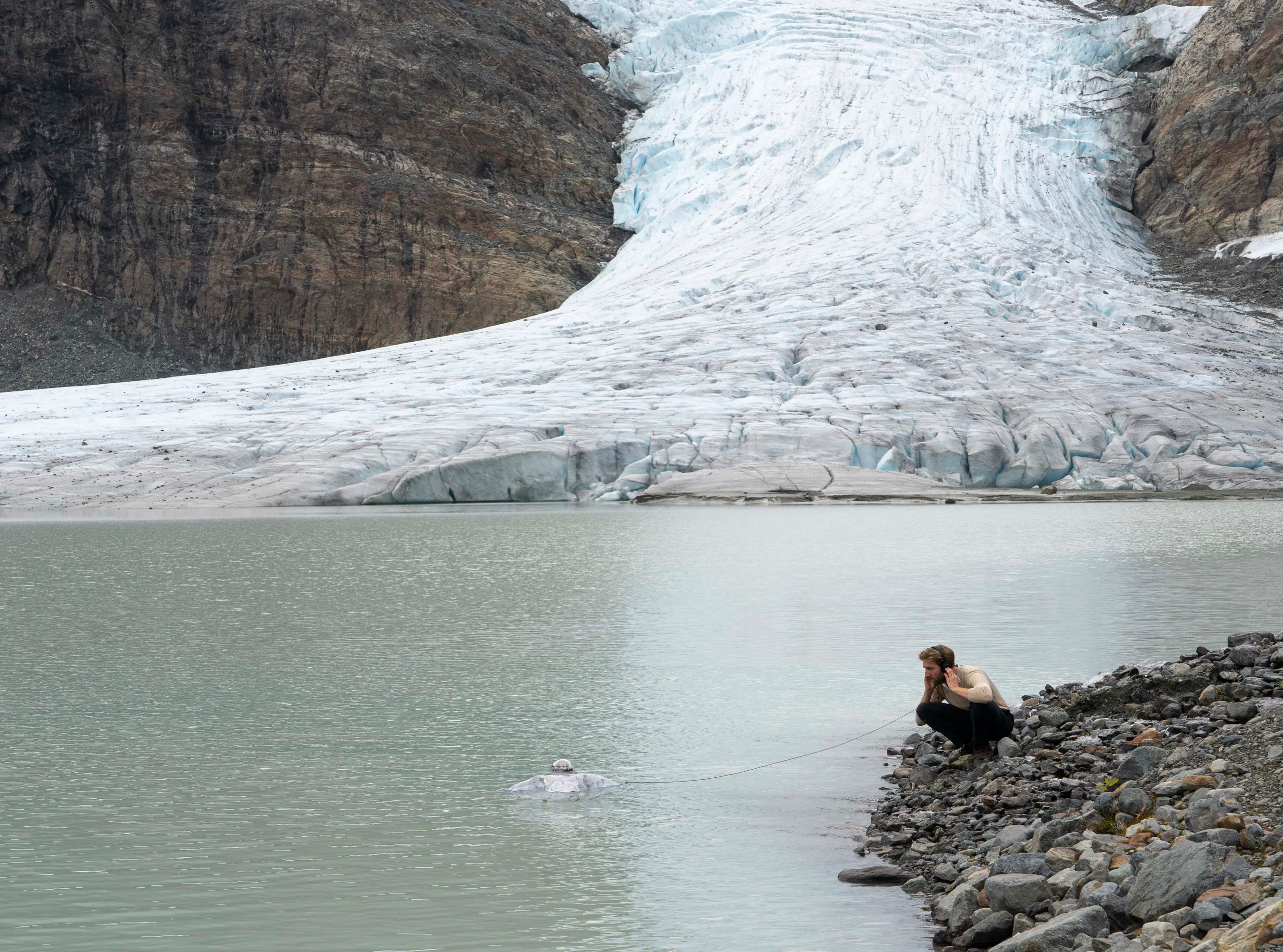Remote Feeling and Off Track
Jan Schulz & Rebecca Jochem
This talk is a double bill - each talk will take 45 minutes.
Remote Feeling by Jan Shulz
11.30 - 12:15
During the talk, I will delve into the communicative potential of environmental data when it is shown in the form of creative and multisensory representations. I will share my practice of “Remote Feeling” (Fernerleben), that goes beyond traditional ways of measuring the environment with numbers, text, graphics, or images. Building on theoretical research into diverse cultural and historical environmental monitoring practices/techniques/customs (both mechanical & digital), I explore how these technological sensors extend the organic human senses.
In this way monitoring systems let us perceive and emotionally connect with the Earth and its changes. This heightened sensitivity is essential for addressing planetary crises and prompting political action.
During the talk, I will demonstrate two custom-built tools designed for ""Fernerleben"":
- A wearable device that vibrates in response to real-time global seismic activities, letting the wearer feel earthquakes and geological changes.
- An inflatable microphone that streams the sounds of distant water ecosystems, allowing us to hear frogs, birds, and weather phenomena like storms and rain.
A ""Fernerlebnis"" offers ways to emotionally experience remote phenomena without disturbing their habitats. It helps us develop a bodily understanding and ecological sensitivity. Practically, ""Fernerleben"" can be used to make scientific research more accessible and engaging through multi-sensory experiences, allowing ecosystems and environmental phenomena to communicate across distances.
Off Track - Appropriating Biometric Data as a Tool for Empowerment, by Rebekka Jochem
12:15 - 13:00
In this talk, I will reflect on the interaction between digital technologies and their physical users. At the center of this relationship is biometric data, the result of quantifying human bodies to make them readable and computable for machines.
I will first map out the current landscape of biometric technologies, revealing their tendency to exploit, limit, and claim authority over the bodies they interact with. To do this I will present specific case studies, ranging from face filters and map applications to period trackers, looking at the technical, economic, and political dynamics that play into the relationship between bodies and their digital representation.
Building upon this analysis of the commercial landscape, I will turn toward more experimental applications of biometric data from the fields of music and creative computing. Using the collaborative relationship between a musician and their instrument as a reference, the diverse examples will focus on highlighting the differences between true gameful experiences and manipulative gamification, and how data can be used to emphasize and complement the non-quantified human experience of the body. In this way, these projects can serve as guides toward new practices and design principles to use biometric data for empowerment.


